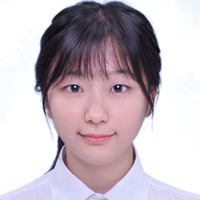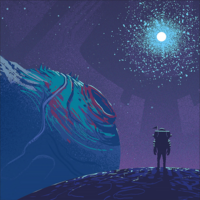About me
🎓 4+ years of teaching experience in Mandarin teaching with a master's degree in language teaching, and a double bachelor's degree in Art and Engineering.
📜Teaching Mandarin Chinese at a governmental community language school in Melbourne, a bilingual culture lover
🎼Play piano and guitar, music makes learning interesting and enjoyable
😘Ins: qing_chineseclass come to talk to me!
------------------------------------------------------------------------
❤️Mandarin Chinese Language (Total Beginner)
------------------------------------------------------------------------
👉 All about Pronunciation: pinyin, tones, spelling, tone-marking rules, plenty of speaking practice. After learning this section, you can spell and pronounce all the pinyin correctly and naturally, and you are ready for HSK learning
Take: Adults 10-15 classes (50mins) depends on the learning process
Children 25-30 classes (25 mins)
👉 All about Characters:
32 strokes, common-used radicals, character-structures, character-writing rules, the stories behind characters and words. Learning vocabulary is easy and fun!
👉 All about Basic Conversation:
Daily used words and sentences in various topics of greeting, colours, time, jobs, weathers, number, family members etc. Basic conversations are easier to learn if you learned the pronunciation at the same time~
👉 All about HSK level 1-2:
HSK is a standardized test of Standard Chinese language proficiency of Mainland China for non-native speakers. When you finished most of the pinyin and have some foundations about the characters and conversations, you are ready to learn HSK textbooks. The HSK test books are a brilliant system including advanced pronunciation skills, characters (150-350), conversation and text. It is perfect for you to start your Mandarin learning!
❣️Remind: For complete beginners (non-Chinese speakers), I recommend to mixed these three basic Chinese learning systems (pronunciation, character and basic conversation) together in one lesson so that you can learn more. However, if you have an HSK test requirement in 1-2 years, the concentrated Pronunciation classes should be taken before you start the HSK level one class.
❣️For example (complete beginners)
Adults: 6 pinyin + 4 characters +2 conversations for one (50mins class)
Kids (above 8): 3 pinyin + 2 characters +1 conversation (50mins class)
Kids (4-8): 2 pinyin + 1 conversation (25mins class)
---------------------------------------------------------------------------------------
💙Mandarin Chinese Language (Medium; HSK 3-4)
---------------------------------------------------------------------------------------
👉All about Grammar:
word, phrase, sentence structure. How to make a correct Chinese sentence? If you can understand some Chinese questions but do not know how to answer them, it’s time for you to learn some grammar. However, learning grammar is not a boring things, youccan learn them easily and happily!
👉 All about HSK level 3-4:
Difficult Sentence grammar, vocabulary building(600-1200), short text and writing practice. You are going to a higher level! If you want to work or study in China or with a Chinese enterprise, level 3-4 is enough for you to do these!
👉Intermediate listening, speaking, reading and writing training
Intermediate learning is the most difficult stage when you need to summarize, synthesize and improve your vocabulary, grammar, speaking and writing skills. To lay a foundation for your advanced learning, no matter which aspect of your difficulties, I will provide you with special development training!
------------------------------------------------------------------------------------
💚Mandarin Chinese Language (advanced; HSK 5-6)
------------------------------------------------------------------------------------
You have already been a mature Mandarin learner! What I can give you are
👉All about HSK 5-6:
Following the textbook: Vocabulary collocation accumulation (2500-5000), long text learning and the article appreciation
👉Advanced Oral/ Speaking Practice:
Preparing for the HSKK test but don’t have a Chinese-speaking environment? Wanna speak like a native speaker? How each sound was linked to another (the linking)? Why do some characters sound different when in different words (sandhi)? How to say the retroflex consonant (儿 sound) sound more idiomatic?
👉Advanced writing lesson:
Mandarin writing presentation. How to use simple sentences to write a long and beautiful complex sentence? How to use Chinese Idiom (成语chengyu) correctly to brighten up your presentation?
👉Homework check and tutoring. Worried about your Mandarin homework? I will target students’ learning weaknesses to improve them quickly.
---------------------------------------------------------------------------------
💜Mandarin special for HK, Macao,and Overseas Chinese students
(could speak and listen to Chinese)
---------------------------------------------------------------------------------------
👉Beginner/ kids:
⭕️pinyin learning and pronunciation correction
The students can speak Mandarin but have problems with pinyin and pronunciation
⭕️Chinese characters learning
The students could speak and listen to Mandarin well but cannot read and write pinyin and characters.
⭕️Chinese picture book/story reading lesson (for 3-6 years old kids), read a small story in Mandarin and give your kids the enlightenment of Chinese wisdom.
👉Intermediate and Advanced
⭕️School Text /Passage Mandarin reading and explanation, help students to understand better about the text and the difficult vocabulary, also practice speaking in Mandarin.
⭕️Putonghua Proficiency Test preparation. Pronunciations, tone, sandhi, linking, retroflex consonant
👉School and Job interview
⭕️ Mandarin interview training for school (kinder to prep/primary, primary to middle school)
⭕️ Mandarin interview training for business or job seeking.
------------------------------------------------------------------------
🐼 Chinese Culture Lecture
------------------------------------------------------------------------
Fun and relaxing lesson if you love Chinese culture!
😁Chinese history series: From the Shang dynasty (1250 BC) to the last Qing dynasty (AD1912).
🎉Chinese traditional festivals series.
🍜Chinese chopsticks and other funny ancient cutlery series
🐰 Chinese lunar calendar and 12 animal zodiac
👚Traditional Chinese costumes series: Hanfu, Qipao, Tangzhuang
👨👧👧 Chinese ethnic minority series
🍲 Chinese traditional food series
-------------------------------------------------------------------------------------------
🙏Please be sure to discuss your learning needs with me before you book the trial class.
🙏If the student does not notify the reason for his/her absence within 24 hours, the course will be considered complete and will not be refunded.
😀Focus on your interests and need, lovely and funny lessons and waiting for you.
😀Customized teaching, learning and homework plan, you are the master of your learning.
😀Essential and meaningful learning materials and lessons take all the materials for free!
😀A lot of takeaways for every lesson, won’t waste any second!


